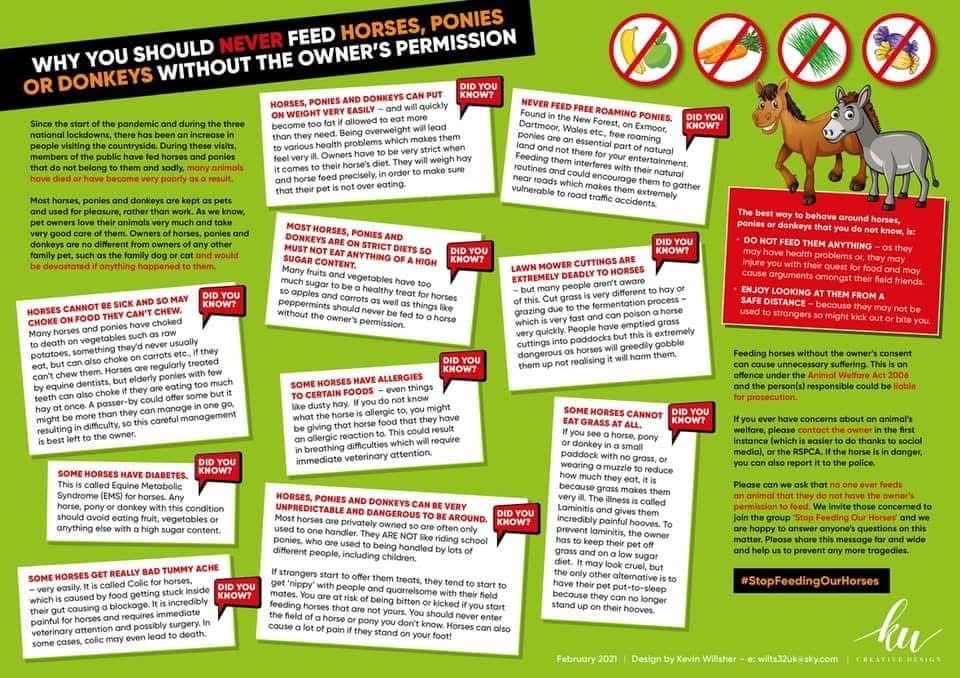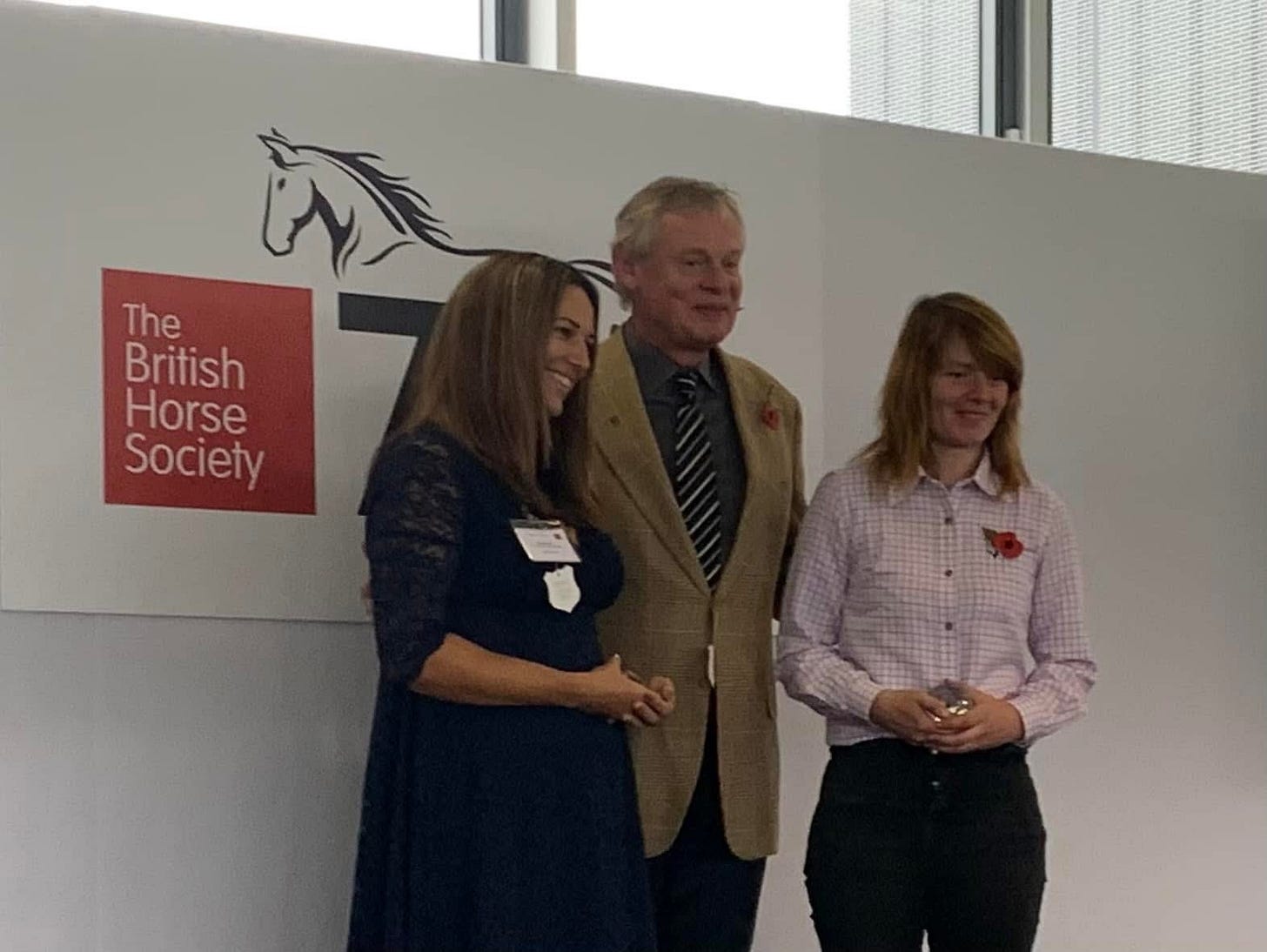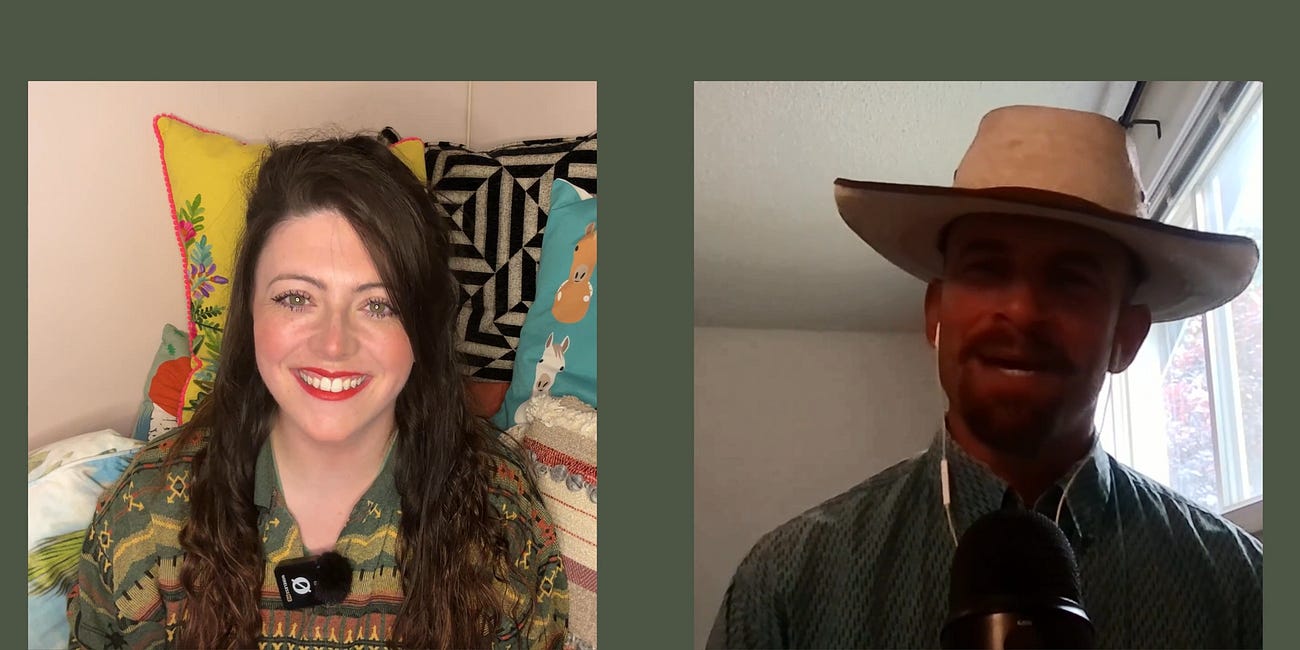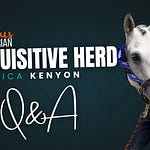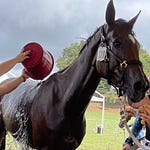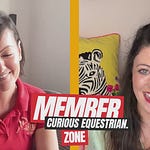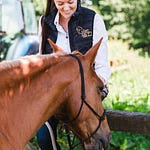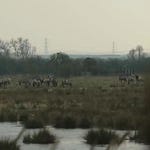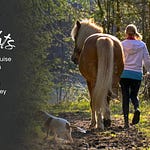Every horse owner knows the sinking feeling: you've managed every blade of grass, monitored every calorie, and then discover strangers have been secretly feeding your horses behind your back. What started as a lockdown frustration has become a global movement, and the stories emerging will break your heart.
This isn't about anger; it's about survival, and the solutions require all of us.
Deep Dive
Guest: Natalie Munir, founder of Stop Feeding Our Horses campaign
Key Topics:
The shocking scale of public feeding incidents worldwide
Real stories of horses lost to "harmless" treats
Why our industry's reputation works against us
Practical defense strategies that actually work
The Big Takeaway
Natalie's Stop Feeding Our Horses campaign emerged from lockdown necessity but revealed a crisis that every horse owner faces: the complete lack of control over strangers' interactions with our animals. Her BHS Equine Welfare Award recognizes not just individual effort, but a community of horse owners finally fighting back against the ignorance that's killing our horses. This isn't about anger; it's about survival, and the solutions require all of us.
Three Things That Stood Out
1. "You wouldn't feed someone else's dog chocolate"
Natalie's analogy perfectly captures the violation every horse owner feels. We manage complex medical conditions, strict diets, and behavioral issues that strangers can destroy in seconds. Yet somehow, horses in fields are treated as public property, free for anyone to "help" regardless of consequences.
2. Lightning's story still haunts her years later
A beautiful grey show pony, choked to death on potatoes dumped in his field. The owner's BBC radio interview is almost unbearable, the raw grief of losing a beloved animal to preventable cruelty disguised as kindness. These aren't statistics; they're family members stolen from us by ignorance.
3. We're losing land because of feeders
Owners are setting horses further back from boundaries, installing expensive electric fencing, and even relocating to safer yards. We're sacrificing grazing, enrichment, and accessibility because we can't trust the public. Some have given up horse ownership entirely rather than live in constant fear.
Deep Dive Analysis
The Perfect Storm We All Lived Through
Lockdown created the crisis we're still fighting. Suddenly, millions of people were walking new routes daily, treating our fields like free petting zoos. What looked like innocent family activities were death sentences for horses whose owners weren't there to intervene.
Anna Louise's story will resonate with every rescue owner: Diesel, her miniature rescue, was secretly fed massive bags of apples by holidaymakers. Despite her meticulous management; soaked hay, restricted turnout, carefully managed everything, he nearly died. For the first time in 14 years, he suffered pedal bone rotation. Thousands in vet bills, sleepless nights, and permanent damage, all caused by trespassers who responded to confrontation with "but he's so cute."
Why Our Reputation Works Against Us
The equine industry's current image crisis makes our situation worse. Racing scandals, dressage controversies, and welfare concerns mean some members of the public view us with suspicion. When they see muzzled ponies or bare paddocks, they assume neglect rather than medical management. Our careful husbandry looks like cruelty to untrained eyes.
The Financial Reality Nobody Discusses
Colic surgery, laminitis treatment, emergency vet calls, the costs of feeding incidents can bankrupt owners. Insurance rarely covers these scenarios, leaving us to choose between financial ruin and losing our horses. The irony is cruel: we spend fortunes keeping our horses healthy, only to have strangers undo it all for free.
Defense Strategies That Work (And Those That Don't)
Signs help, but determined feeders ignore them. Electric fencing creates distance but costs grazing. CCTV provides evidence but can't prevent incidents. The most effective solution? Personal signs naming individual horses and their conditions. "This is Bella—EMS means I can't eat treats" works better than generic warnings because it creates connection rather than defiance.
Questions for Reflection
How has public feeding affected your horse management decisions? Whether it's choosing livery yards, installing fencing, or restricting turnout, most of us modify our horses' lives to protect them from strangers.
What would it take for you to give up horse ownership due to public interference? For some, the stress of constant vigilance outweighs the joy of horse ownership. Are we heading toward a future where horses can only be kept in high-security facilities?
Should we be doing more to educate non-horse people in our communities? Natalie's school visits showed that children understand the concept of permission, they just need to be taught. Are we missing opportunities for education in our local areas?
Join the Conversation
Every horse owner reading this has a feeding story, whether it's finding carrots in fields, confronting trespassers, or discovering mysterious illness with no obvious cause. Natalie's campaign proves that individual frustration can become collective action when we share our experiences and support each other.
The BHS Equine Welfare Award recognition shows that our industry is finally taking this seriously. But real change requires all of us spreading awareness beyond the horse world. Share this episode with non-horsey friends and family, they need to understand what their "kindness" really costs us.
What's your worst public feeding experience? How do you protect your horses from well-meaning strangers? Share your stories in the comments below—your solutions might save someone else's horse.
Support the campaign:
For free subscribers seeing this Thursday: Want early access to these deep dives plus exclusive member Q&As with our guests? Join our inquisitive herd for just £4.99/month.
Did you catch last Members Q&A with Ben Longwell?



